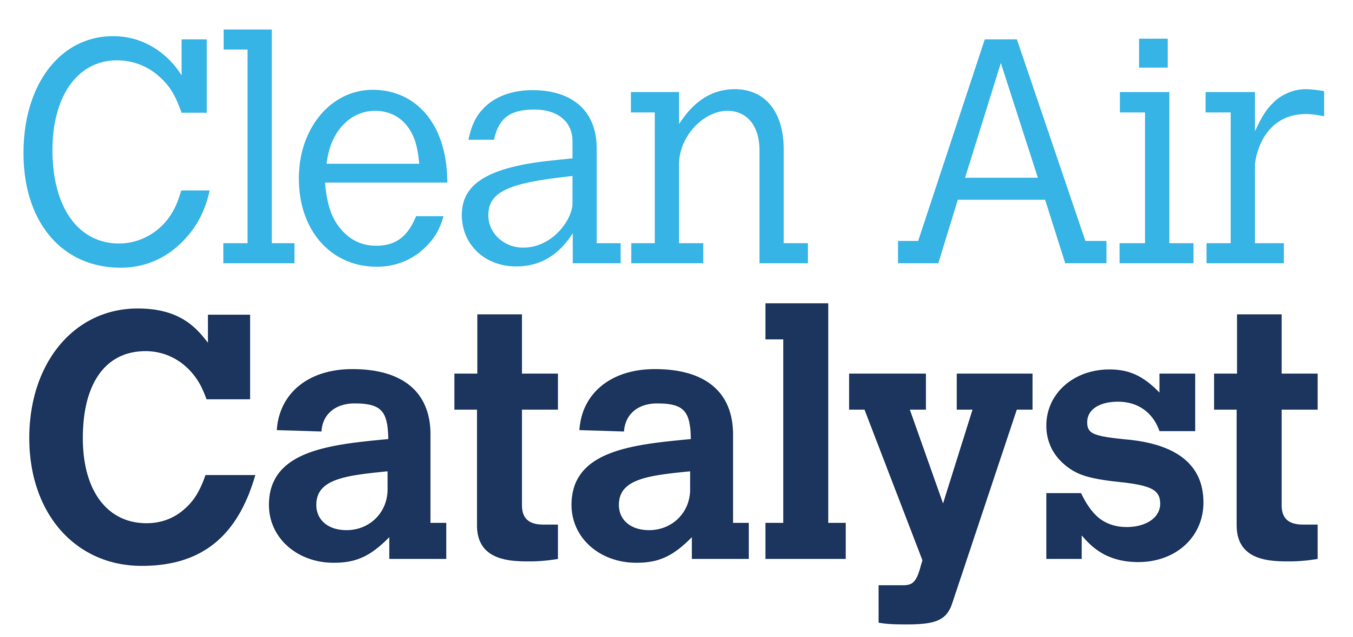Workshops in Indore prepare health workers and traffic police to serve as local clean air champions
Members of Indore’s traffic police force participate in a snakes-and-ladders game to understand the dangers of air pollution and key solutions for achieving clean air. Photo by Raju Pawar for Clean Air Catalyst.
By Sudhir Gore
The Clean Air Catalyst held two one-day air pollution workshops last month for cohorts of Accredited Social Health Activist (ASHA) community health workers and Indore’s traffic police officers. The workshops explored the science and health impacts of leading transportation solutions for air pollution in Indore. The Catalyst organized them in partnership with the city’s district health and traffic control departments.
ASHA workers and traffic police are on the front lines of air pollution due to the nature of their day-to-day work, which often takes them outdoors and into the city’s most congested areas. They are also in regular contact with residents who face higher exposure risks, including motorists, pedestrians, women, and caretakers. ASHAs and traffic police are respected voices in their communities, making them ideal messengers on the health risks of air pollution, ways to reduce daily exposure, and the need for long-term solutions.
Senior pulmonologist, Dr. Salil Bhargav, was a keynote speaker at both trainings, where he outlined the leading health impacts of air pollution, including respiratory and cardiovascular diseases, providing practical suggestions for how individuals can protect themselves. Dr. Bhargav also spoke about air pollution’s role in shortening lifespans. According to a recent report, air pollution was found to reduce the lifespan of the average resident of Madhya Pradesh (the state in which Indore is located) by three years.
Other speakers from the Catalyst presented on the root causes and key sources of Indore’s air pollution, as well as the long-term solutions that city leaders are now considering in partnership with the newly launched Indore Clean Air Coalition.
ASHA worker Santosh Chauhan shares from her personal experience ideas for how to engage with community members on air pollution, its health impacts, and ways to combat it. Photo by Raju Pawar for Clean Air Catalyst.
The 30 attendees of the ASHA worker training represented ten of Indore’s urban wards, which the Catalyst has prioritized as high-exposure areas where transportation solutions such as a low emissions zone (LEZ) could be implemented. The 40 traffic police who attended their training, half of whom were women, also serve in these more congested neighborhoods.
Throughout the workshops, participants engaged with interactive tools like a snakes-and-ladders game to understand the dangers of air pollution and clean air solutions. Participants also learned strategies to educate citizens on how to protect themselves in the short term and why long-term policy action is essential.
Santosh Chauhan, an ASHA worker who had attended an earlier Catalyst training, spoke about the kinds of messages she uses to raise awareness through women’s health group meetings, home visits, and other forums. Vinay Pandey, Assistant Program Manager of Urban Health, stated that ASHA workers will expand their already substantial community health impact by incorporating air pollution awareness into their work.
Mahesh Sharma, Superintendent Engineer of the Indore Municipal Corporation (IMC) , emphasized the importance of the trainings, "This training will prove extremely beneficial in safeguarding the health of our traffic police officers." Arjun Pawar, Traffic Inspector of the Western Region, added, "This training will aid in protecting not only the general public but also the traffic police themselves."
Breathing clean air is essential for good health. Globally, air pollution claims the lives of 8.1 million people each year, with one in four victims being an Indian. It is the second leading risk factor for death, including for children under 5 years. In Indore alone, around 2,400 deaths and 620 new cases of asthma among children occur annually due to air pollution.
To combat vehicular air pollution in the city, the IMC, USAID, and the Catalyst recently launched the Indore Clean Air Coalition. The coalition’s goals are to raise public awareness about air pollution’s major sources and health impacts, and to help the city select and implement proven policy solutions to reduce emissions. ASHA workers and traffic police will bring valuable community perspectives and input to the Coalition, informed by their growing knowledge, as the city begins implementing solutions.
The Catalyst would like to thank the following team members for their role in the trainings:
Kaushik Hazarika, Project Manager of Clean Air Catalyst, provided detailed insights into the collaborative efforts with the IMC to implement solutions.
Saurabh Porwal, Program Manager at Vital Strategies, offered practical information on the adverse health effects of poor air quality and ways to mitigate them.
Megha Namdeo, the Catalyst’s City Project Officer, elaborated on transportation solutions.
Dr. Nivedita Barman, Catalyst scientist, presented the basics of air quality science through fundamental examples.


